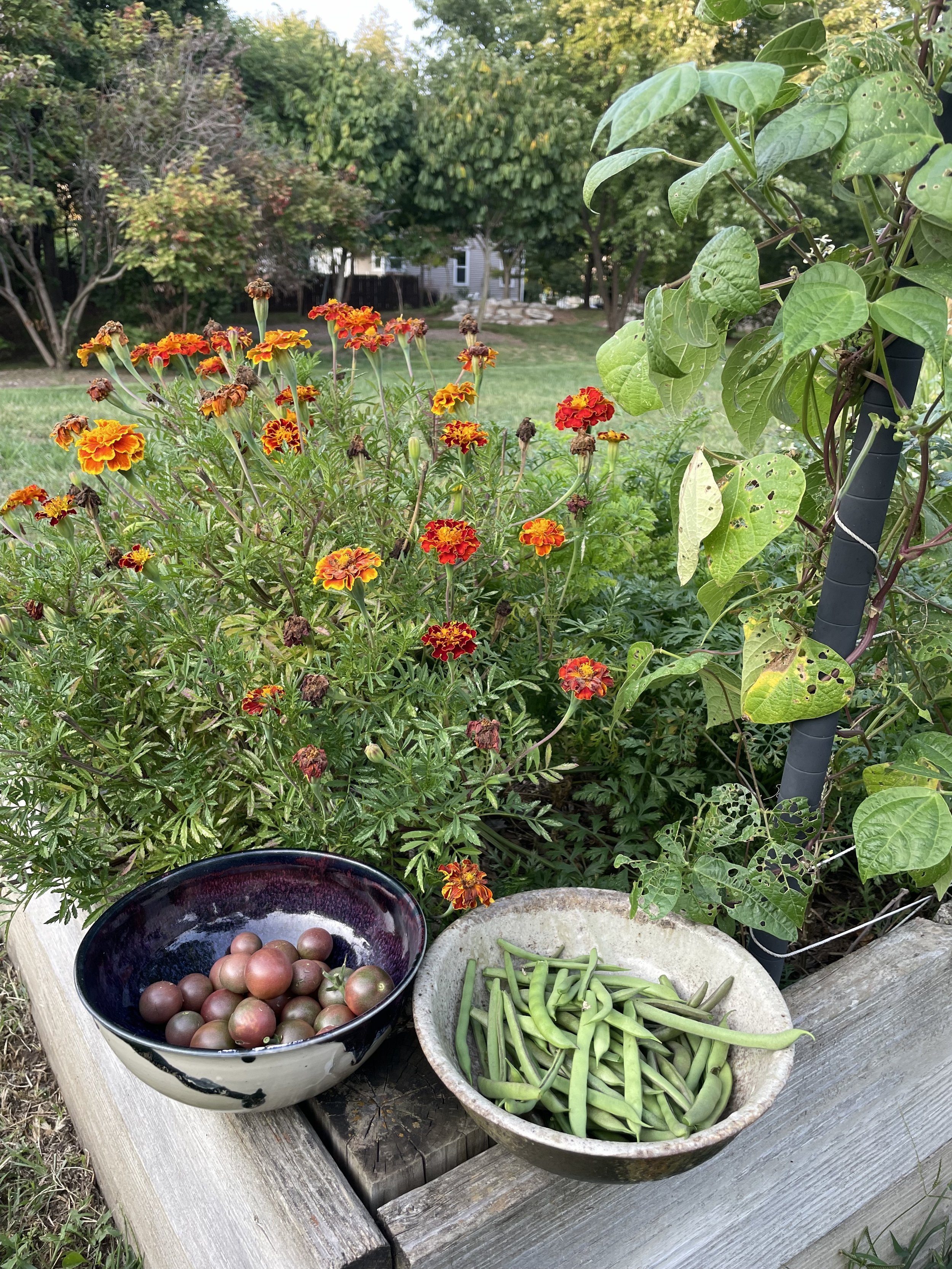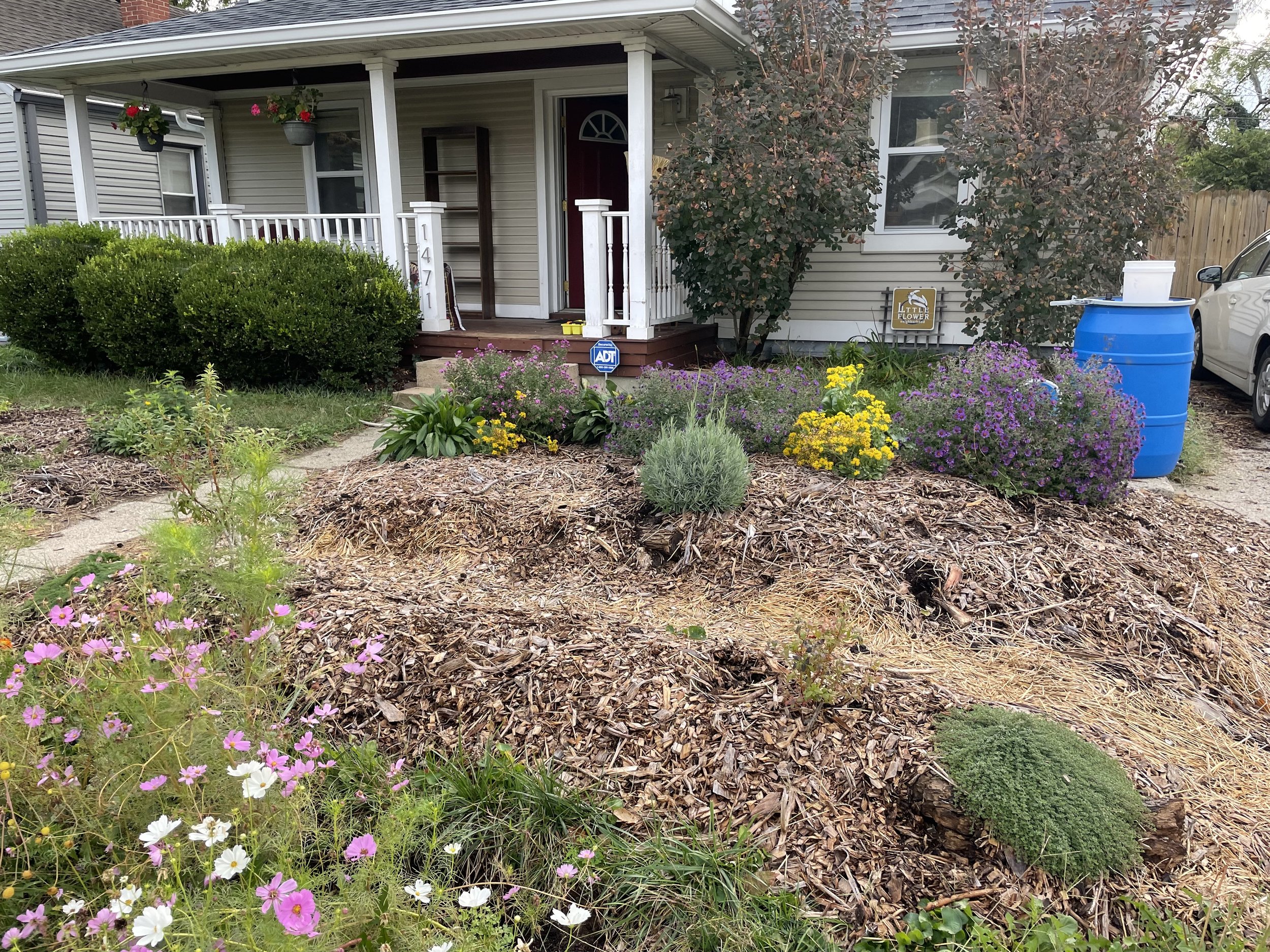In Praise of Particulars
1 October 2022
Our garden continues to flood the kitchen with cherry tomatoes and cucumbers. That means drying and pickling, respectively, abundance honoured and put up for winter. The work is a seasonal rhythm I’m (Leah) coming to know. But then there are surprises: an American persimmon tree spilling its bounty, the fruit spied and gathered from a suburban lawn by the gleam of headlights. A swarm of dragonflies big as hummingbirds come to feast on our mosquitos. I had no idea that Indiana September meant so many things.
Such discoveries feed my happy homebody self, of course, but they also heighten my excitement to go to Cappadocia. What small wonderful things are particular to that place? What rhythms or fruits or creatures have the historians and theologians passed over, that I might finally get the chance to learn?
Much of my research for The Sun in Slender Glass has moved in the generality of “the Greco-Roman world.” That’s often helpful. Byzantine mosaics (like the ones just unearthed in Gaza) can stand in for ruins long lost to Cappadocia’s tumultuous history. The ancient preference for male speech and female modesty/silence can be assumed fairly constant from Rome to Constantinople, helping me imagine the constraints and possibilities of Macrina’s world.
I have found some historical data particular to Cappadocia. “The land of beautiful horses,” from Athens or Constantinople it suffered the scorn often heaped upon the Roman Empire’s provinces. “A viper bit a Cappadocian. The viper died,” quipped an ancient proverb. Rhetoricians mocked the distinctive accent and claimed they’d never heard of a Cappadocian who could deal in words of fire, even after men from Cappadocia taught in the schools and rose to the rank of governor. Snow buried the roads so deep in winter that the people were said to reek of it.
The Cappadocian Fathers—Basil the Great, Gregory of Nyssa and Gregory of Nazianzus—contended more favourably for their homeland. Its spring wildflowers were breathtaking. More important to them, their life and work helped make the region a bastion of Trinitarian orthodoxy during the contentious period after the Nicene Council. Gregory of Nazianzus eventually boasted that Cappadocia was known for its horses and its love of the Trinity.
So far, so good, but it still feels like a bird’s eye view. I’m so glad we get to stay almost a week at an organic farm outside Avanos. We’ll go to pottery workshops and vineyards there, and even ride horses. We’ll be traveling to Uluköy, the town that sits on the spot of Macrina’s family estate of Annisa, and to Niksar where she lived as a child. In Sinop we’ll see the Black Sea. Unimagined particularities await!
Autumn bounty.
Deep-mulching the backyard: fruit scraps, pizza boxes, and straw on top
Annisa, Indianapolis. Stay tuned for Uluköy/Annisa!
Turkey Run last week; Turkey tomorrow!




